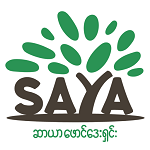Archieved Trainings And Programs
Capacity Building for Buddhist Women
This program is to provide assistance to female Buddhists to improve their thinking, teaching, and dialogue skills, which are all necessary in social transformation of our community in Southeast Asia. These basic skills will be strengthened through three different kinds of assistance; technical, financial, and resources. see more
Buddhist Approach to Teaching
About 90% of the population in Myanmar are buddhist and the rest belong to other religions or no religions. There have been many conflits in the name of religion. Some of the contributing factors to the current conflicts in Myanmar are caused by people who aren’t educated, who aren’t aware of the value of differences and who have no experience in different culture.
Training of Religious Educators
The project is grounded in three interconnected key issues identified within Myanmar’s society and education system:1. Religious teachers’ insufficient understanding of other religions’ teachings and misunderstandings towards other religious groups observed in the misinformation spread by religious leaders to their followers. see more
Digital Learning Center
The objectives of the Digital Learning Center are: To reduce the gap in access to education and provide continuous digital learning opportunities in a safe environment for children and adults with limited access to educational facilities, thereby enhancing their skills and knowledge nationwide. see more
Library And Reading Clubs
The objective of Library and Reading club is to provide opportunities for local children to learn together and to build links between communities and organizations. see more
Digital Literacy And Scratch Programming Classes
As technology becomes more widely used in the 21st century, it is important to understand digital literacy. So Teachers and students will be able to understand and use technology. see more
Learning at Home Program
Due to COVID-19, there has been a rise of many online learning platform but most of them are targeting to children from middle or higher socio-economic situations. see more
Teaching and Learning Q & A
This program is organized with experienced teachers to enhance educational knowledge for parents and teachers across Myanmar. see more
Brahmacariya Culture Course
This is part of Buddhist Approach to Teaching training that participants need to make video lessons as part of their training assignment and then in the end, those videos have been used to run the training for children. see more
